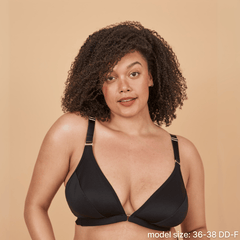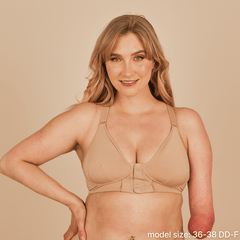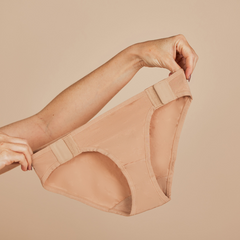
We had people submit their questions to our Resident Sexual Health Clinician, Dr. Kathryn Ellis, OTR/L, OTD, AASECT-SC, an occupational therapist and American Association of Sexuality Educators, Counselors, and Therapists Certified Sexuality Counselor.
Body image comes up with almost every single patient I work with regardless of whether or not they have a disability, chronic illness, or are going through medical treatment. We all can be self-conscious about our bodies. It’s almost like we were taught to be…
Well, we were! Many of us received messages that taught us to feel bad about our bodies and constantly strive to “fix our bodies.” Very rarely were we taught how to feel good about our bodies and in our bodies.
For people with physical disabilities or who experience changes to their bodies, this can be even more so as the standard of beauty we often see highlighted in media is thin, able bodied, symmetrical, young bodies.
So let’s talk about 3 ways to boost body image:
1. Play the “Who Told Me This?” Game
When you engage in negative self talk, ask yourself “where did I learn this? Who told me this?” Then ask yourself if that person is someone you value, respect, want to be friends with, or want to have sex with.
Here’s an example: You don’t see yourself as a sexy person, since you had to have your arm amputated due to cancer. You think people don’t see you as a sexual person. When you ask yourself where you learned this from, you recall that you heard a kid in high school making fun of another kid who had limb difference from birth.
Now ask yourself:
- Do I even like that kid from highschool?
- Do I need him to like me?
- Do I want to have sex with him?
You might come up with answers like, “ew, no, that guy sucked. He was so mean.” This is one way to challenge those negative messages and prioritize the messages that are helpful to you viewing yourself in a positive way.
2. Mirror Work
Mirror work uses strategies from exposure therapy and body kindness to help you build confidence in your body. Stand in front of the mirror naked and gaze over each part of your body. Gaze however long it takes you to either say something kind to that part or a compliment.
For example, you may thank your ankles for supporting you, you may compliment your shoulders or curves, or you may thank your belly for keeping you well fed.
You may find yourself avoiding the mirror or hating looking into it. If that is the case, you can ease into mirror work by being clothed and over time removing more clothing.
3. Body neutrality
Body neutrality can be an effective strategy in boosting body image as it downplays the role the physical form of the body has as being influential to self-worth.
Body positivity might not be a great fit for everyone as it still puts a hyper focus on the body and its connection to self-worth. Body neutrality highlights that the body does not influence self-worth, which might be a better fit for some people.
Going along this perspective, you can consider how the physical shape of your body has zero influence on the sensory process of feeling pleasure -the perception of pleasure in your brain.
In conclusion, body image can rear its ugly head and cause people with disabilities to feel unsexy. There's a lot of messaging that can reinforce this, so these three strategies are likely most effective if you make them a practice. Consistently doing things that affirm you as a sexual person and reinforce your own confidence will be helpful in canceling out the loud noise of negative body image.



